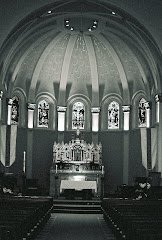In the news pedophile priest scandals are surfacing in Europe. We need to look at this tragedy from an objective perspective. Philip Jenkins is a professor at Penn State. He is NOT a Catholic. He has written a very objective book on this topic:
http://www.amazon.com/Pedophiles-Priests-Anatomy-Contemporary-Crisis/dp/0195145976
This was summarized in an article by Jenkins at:
http://www.zenit.org/article-3922?l=english
Another Catholic author on another blog summarized the article and book in the following bullet points. I believe that any abuse is a horrible thing, and anyone who violates that trust should be prosecuted to the full extent of the law. However, priests are being portrayed in a biased way in the media, and we need to understand the situation. Please read the articles/book or at least this summary:
•Priestly celibacy is not the issue - married men are more likely to abuse children than unmarried
•Most child abuse takes place within the home.
•All religious groups have pedophile scandals, and the Catholics (while the largest religious group) are at the bottom of the list statistically.
•Child abuse is prevalent in all areas of society: schools, youth organizations, sports, etc.
•Statistically, of all the professions, Christian clergy are least likely to offend. Doctors, Farmers and Teachers are the professions most likely to abuse children--not clergy.
•Among clergy offenders Catholic priests are least likely to offend.
•Catholic cases of pedophilia make more headlines because of anti Catholic prejudice and because the Catholic Church is bigger and more lucractive to sue.
•Pedophilia and Euphebophilia are different problems. The former is sexual attraction to pre-pubescent children. The latter is attraction to teenagers. Most cases branded 'pedophila' are actually 'euphebophila.'
•Most of the cases of euphebophilia are homosexual in nature, however the politically correct do not want this problem to be associated with homosexuality.
•The number of Catholic priests guilty of pedophilia is very small.
•What we now call 'cover up' was often done in a different cultural context, when the problem was not fully understood and when all establishment organizations hushed scandals. They did so for what seemed good reasons at the time: protection of the victims and their families, opportunity for rehabilitation of the offender, the avoidance of scandal to others. It is unfair to judge events thirty years ago by today's standards.
•When lawsuits are looming people smell money. We must be wary of false accusations.
•The accused must be entitled to a fair hearing. The church should insist on hard proof of the abuse, and for the sake of justice, ensure that the innocent are not prosecuted.
•When guilt is established the offender must be punished, not sheltered.
•Distinctions must be made between types of abuse. Some offenses are worse than others. Verbal abuse or corporal punishment during a time when that was acceptable, while lamentable, is not the same as sexual abuse or extreme physical abuse.
•Sexual abuse of an adult, or a sexually experienced older teenager is wrong, and damaging, and should be punished, but it is not the same as the sexual abuse of a younger, innocent child.
•Number of offenses must be considered. One lapse is not of the same seriousness as repeated, persistent and premeditated offenses.
Medieval Art and Liturgical Objects at the Musée de Cluny in Paris (Part 1)
-
Our Ambrosian Rite expert Nicola de’ Grandi recently visited the Musée de
Cluny in Paris, so called because it is housed in a building that was once
the Pa...
12 hours ago






No comments:
Post a Comment